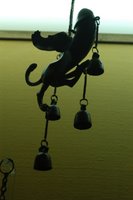Trope, Affect, and Democratic Subjectivity
All -
I just got this announcement/call for papers for a November 2-5, 2006 conference at Northwestern:
Conference on Trope, Affect, and Democratic Subjectivity
>
>
The Center for Global Culture and Communication at Northwestern University
will sponsor a conference this November 2-5, 2006 on Trope, Affect, and
Democratic Subjectivity. The conference will feature plenary addresses by
leading scholars in classics, comparative literature, political theory,
communication studies, and other disciplines, as well as concurrent presentations. Scholars who wish to be included in the concurrent sessions
are invited to submit abstracts or papers by September 15, 2006. Those
selected for presentation will be notified by September 30.
>
The conference will be co-sponsored by the Northwestern Program in
Rhetoric and Public Culture, and directed by program faculty Dilip Gaonkar,
Robert Hariman, and Ernesto Laclau. The conference builds on the renewed
interest in rhetoric that is occurring across the human sciences. This
continuing displacement of modernist assumptions in the conduct of inquiry
reflects not only the legacy of the linguistic turn of the 20th century, but
also more recent and equally profound shifts in both intellectual culture
and configurations of the political in the 21st century. What began as a
crisis in representation has become a basis for focused critical study
regarding a volatile field of transformations across increasingly fungible
media, practices, and peoples. To that end, the conference focuses on the
crucial theoretical conjunction between trope, affect, and democratic
subjectivity. By "trope," we feature the productive capacity of discursive
operations for transformation; by "affect" we mark the significance of latent economies of signification and social energy; by "democratic subjectivity" we orient towards the constitution of the political subject as a citizen capable of public
participation and collective agency.
>
All papers presented will be eligible for publication in a volume on the
conference theme to be edited by the conference organizers. Applications
for presentation should be sent to r-hariman2_at_northwestern.edu. Inquiries
about attendance should be sent to Amber Day, a-day_at_northwestern.edu.
Plenery Speakers:
Gabriela Basterra (New York University; Gabriela.basterra_at_nyu.edu)
Barbara Biesecker (University of Iowa; Barbara-Biesecker_at_uiowa.edu)
Barbara Cassin (CNRS, Paris; barbara.cassin_at_wanadoo.fr)
Joan Copjec (SUNY, Buffalo; joancopjec_at_hotmail.com)
Oliver Marchart (University of Basel;Oliver.Marchart_at_unibas.ch)
Monique David-Menard (Centre d'Etudes du Vivant, Universite Paris;
Mdm01paris_at_aol.com)
Jean-Claude Monod (CNRS, Paris; jcmonod_at_hotmail.com)
Jelica Sumic-Riha (University of Ljubljana; jsumr_at_zrc.sazu.si)
Diane Rubenstein (Cornell University; dsr27_at_cornell.edu)
Phillipe Salazar (University of Cape Town; Salazar_at_telkomsa.net)
I just got this announcement/call for papers for a November 2-5, 2006 conference at Northwestern:
Conference on Trope, Affect, and Democratic Subjectivity
>
>
The Center for Global Culture and Communication at Northwestern University
will sponsor a conference this November 2-5, 2006 on Trope, Affect, and
Democratic Subjectivity. The conference will feature plenary addresses by
leading scholars in classics, comparative literature, political theory,
communication studies, and other disciplines, as well as concurrent presentations. Scholars who wish to be included in the concurrent sessions
are invited to submit abstracts or papers by September 15, 2006. Those
selected for presentation will be notified by September 30.
>
The conference will be co-sponsored by the Northwestern Program in
Rhetoric and Public Culture, and directed by program faculty Dilip Gaonkar,
Robert Hariman, and Ernesto Laclau. The conference builds on the renewed
interest in rhetoric that is occurring across the human sciences. This
continuing displacement of modernist assumptions in the conduct of inquiry
reflects not only the legacy of the linguistic turn of the 20th century, but
also more recent and equally profound shifts in both intellectual culture
and configurations of the political in the 21st century. What began as a
crisis in representation has become a basis for focused critical study
regarding a volatile field of transformations across increasingly fungible
media, practices, and peoples. To that end, the conference focuses on the
crucial theoretical conjunction between trope, affect, and democratic
subjectivity. By "trope," we feature the productive capacity of discursive
operations for transformation; by "affect" we mark the significance of latent economies of signification and social energy; by "democratic subjectivity" we orient towards the constitution of the political subject as a citizen capable of public
participation and collective agency.
>
All papers presented will be eligible for publication in a volume on the
conference theme to be edited by the conference organizers. Applications
for presentation should be sent to r-hariman2_at_northwestern.edu. Inquiries
about attendance should be sent to Amber Day, a-day_at_northwestern.edu.
Plenery Speakers:
Gabriela Basterra (New York University; Gabriela.basterra_at_nyu.edu)
Barbara Biesecker (University of Iowa; Barbara-Biesecker_at_uiowa.edu)
Barbara Cassin (CNRS, Paris; barbara.cassin_at_wanadoo.fr)
Joan Copjec (SUNY, Buffalo; joancopjec_at_hotmail.com)
Oliver Marchart (University of Basel;Oliver.Marchart_at_unibas.ch)
Monique David-Menard (Centre d'Etudes du Vivant, Universite Paris;
Mdm01paris_at_aol.com)
Jean-Claude Monod (CNRS, Paris; jcmonod_at_hotmail.com)
Jelica Sumic-Riha (University of Ljubljana; jsumr_at_zrc.sazu.si)
Diane Rubenstein (Cornell University; dsr27_at_cornell.edu)
Phillipe Salazar (University of Cape Town; Salazar_at_telkomsa.net)






